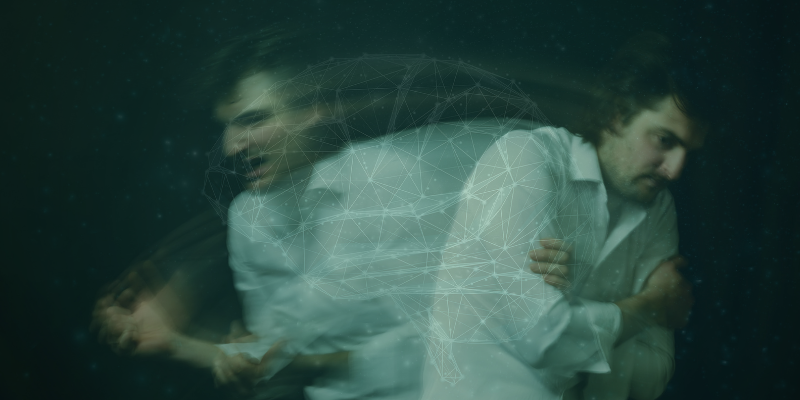
Electroconvulsive therapy, or ECT for short, is a medical procedure performed under anesthesia that involves electrical stimulation of the brain to induce brief, controlled seizures. It is most commonly performed on people suffering from severe mental health disorders that have not responded to treatment or that require rapid results. Although research has found that ECT can be effective, there are significant downsides, including memory loss.
Performed on people suffering from severe mental health disorders that have not responded to treatment or require rapid results, electroconvulsive therapy (ECT) can be effective, but there are significant downsides, including memory… Click To Tweet
WHAT IS ELECTROCONVULSIVE THERAPY?
ECT is a procedure that dates back to 1938 when Italian neurologists Ugo Cerletti and Lucino Bini first intentionally delivered electric shocks to patients to induce seizures. In the early days of the procedure, physicians used high doses without any anesthesia, contributing to serious side effects and a stigma that remains today. Current ECT procedures involve lower, targeted doses and are performed with anesthesia and muscle relaxants. It can be an effective technique for certain severe psychiatric disorders, but it continues to be associated with a number of aftereffects, including memory loss, confusion, problems with new learning, headaches, and muscle aches.
WHICH MENTAL HEALTH CONDITIONS MAY BE TREATED WITH ECT?
ECT is used to treat severe cases of certain psychiatric issues that have not responded to standard treatments, such as medications and psychotherapy. It may also be used in cases when rapid results are of the essence.
- Major depressive disorder: Clinical research shows that ECT may provide relief from severe depression or treatment-resistant depression. ECT is generally considered a last resort treatment option after all other depression treatment modalities have failed. However, most people, including psychiatrists and other physicians remain unaware that depression is not one thing. It is not a single or simple disorder. The brain imaging work at Amen Clinics shows that there are 7 types of depression and anxiety and knowing your type is critical to finding the right treatment plan. This helps explain why antidepressants may work for some people with depression but not for everyone. In people who do respond to ECT, repeat procedures may be necessary to maintain the beneficial effects.
- Mania: Mania is a symptom that is often seen in people with bipolar disorder. A mood disturbance, mania is associated with heightened energy levels, a sense of euphoria, an inflated sense of self-esteem, grandiose ideas, increased talkativeness, racing thoughts, and more. Mania is also linked to impulsivity, inappropriate or risky behavior, irritability, aggression, and substance use. In severe cases of mania, people may also experience hallucinations, delusional thoughts, or paranoia.
A 2021 review of 7 randomized controlled trials on the use of ECT for acute mania found high rates of improvement. Despite this, the procedure is rarely used for mania, accounting for only 0.2%-12% of ECT use globally. ECT is typically considered only when pharmacotherapy has failed. However, it’s important to note that ECT for mania is considered an “off-label” use in the U.S.
- Schizophrenia: A chronic disorder, schizophrenia impacts a person’s ability to differentiate reality from fantasy and is associated with hallucinations, delusions, and distorted thinking. A 2019 review in Acta Neuropsychiatrica reports that ECT may be beneficial for those with treatment-resistant schizophrenia, but its use is limited.
- Catatonia: A serious disorder that interferes with a person’s awareness of the world around them, catatonia is characterized by a lack of movement or communication. The syndrome is associated with schizophrenia and other mental health issues. A 2020 study on ECT for the treatment of catatonia suggests it can be effective but notes that stigma regarding the procedure, legal restrictions, and a lack of standard protocols contribute to limited usage.
- Suicidal ideation: ECT has been associated with a significant reduction in the risk of suicide among hospitalized patients suffering from major depressive disorder, according to a 2021 study in the JAMA Open Network. In this study of 28,557 hospitalized patients, ECT was most effective in reducing suicide risk in those with psychosis and in individuals aged 45 or older.
WHAT ARE THE RISKS OF ECT?
Although ECT is generally considered safe, it is associated with a variety of risks and side effects that have contributed to the limited utilization of the procedure.
- Memory loss: One of the biggest downsides to ECT is the potential for post-procedure memory impairment. ECT has been associated with problems with memory, including short-term memory and trouble remembering events that occurred leading up to the ECT procedure. A 2017 study on 1,212 individuals who had ECT noted a decline in subjective memory in 26% of the participants. In this study, women were more likely to have memory problems. Surprisingly, memory issues were more common in younger adults—ages 18 to 39—compared to those 65 years of age or older. Over time, memory problems may improve, however, in some people, they may persist.
Another factor that may play a role in memory issues following ECT is the fact that it is performed under anesthesia, which is associated with post-operative cognitive dysfunction.
- Cognitive decline: In addition to memory problems, ECT has been linked to other cognitive impairments. For example, a 2017 study found reductions in attention following ECT. And a 2020 study in BJPsych Open points to short-term decreases in new learning post-ECT.
- Confusion: Following ECT, some people may experience confusion, which is generally temporary and typically lasts only a few minutes to a couple of hours. More common in older individuals, confusion
- Physical ailments: Some of the most common complaints following ECT include headaches, nausea, and vomiting. Some people may also experience jaw pain and muscle aches.
WHAT TO KNOW BEFORE CONSIDERING ECT
Most people only consider ECT when other standard treatment options have failed. What many of these individuals don’t realize, however, is that there are a host of additional ways to treat depression and other psychiatric issues that are not typically offered through traditional psychiatry or medical fields.
As mentioned earlier, brain SPECT imaging has helped Amen Clinics identify 7 types of depression and anxiety, and it can increase understanding of the causes of mood disorders and other mental health issues. Knowing more about your brain and the underlying root causes of your mental health problems can be a key to finding solutions that don’t involve a medical procedure with significant side effects.
Depression, suicidal ideation, and mania related to bipolar disorder and other mental health issues can’t wait. At Amen Clinics, we’re here for you. We offer in-clinic brain scanning and appointments, as well as mental telehealth, clinical evaluations, and therapy for adults, teens, children, and couples. Find out more by speaking to a specialist today at 888-288-9834 or visit our contact page here.





ECT was given to me at the hospital featured in "One Flew Over the Cookoo's(?) Nest", and my memory around the 1970s is blank, so I concur with these findings. Now that I am in my 70s, my memory is quite good plus an MRI for a Mayo Clinic research study shows a "normal" brain.
Comment by Mrs. Ferris S.Whitfield — December 16, 2022 @ 4:19 AM
Note to editor: interesting article but the thought under confusion is incomplete.
Comment by Martina — December 16, 2022 @ 5:53 AM
My mother had shock treatments back in the mid-1960s. I would not recommend them to anyone. They didn't help my mom but made the situation worse causing everyone in my family to try to cover up a big "family secret" that my mother was struggling with. She should have gone through psychotherapy to face what happened rather than covering up what had happened in our family.
Comment by Pamela K. Orgeron, M.A., Ed.S., BCCC, ACLC, BCMMHC, Speaker, Author — December 16, 2022 @ 7:03 AM
This topic had quite a charge for me. I was in 7th grade (1984) when my Mom was given a series of electric shock therapy during a hospital stay. They told me to say goodbye to her because she might not remember us or anything else after her
treatments. Thankfully her memory loss was minor but it didn’t work, she’s now 75 years old and still depressed and still on psych meds. This treatment is archaic and I’m shocked it’s still being considered. The doctors considered giving her a lobotomy. It was the only thing they didn’t try on her, thankfully. How far have we come since the 70’s and 80’s ?
Comment by Jennifer Tibbitts — December 16, 2022 @ 8:46 AM
This treatment gave me my life back. While I was hesitant to do it, I’m very glad I did. Memory loss was only of the prior few deeply depressive months which honestly I have no desire to remember . Just my experience .
Comment by Jeanne — December 16, 2022 @ 8:54 AM
Would you have any imaging after ECT possibly over the years? Would you have noticed any effects as more soy has been substituted for other protein in our diets with risk, may be worse for some people, of methionine deficiency and brain issues? That may have been happening in the west since about the 1960s. I read that the Chinese would eat soy when short of pork but would ferment it. Fluffy tofu? Tempeh in Indonesia. Natto in Japan.
Comment by Brian Sandle — December 16, 2022 @ 12:25 PM
Ect is not he same as electro magnetic therapy right? Where they do pulses on your head but not invasive.
Comment by Julie — December 16, 2022 @ 12:51 PM
ECT is or was used at University of Kansas. I saw someone shortly after treatment because they were in the hospital with me. This is one of those barbaric treatments that if it were up to me (and I know it isn't )it would not be used. I would not use pre frontal lobotomy and I would not use insulin coma which was used on my dad. I wouldn't rely so heavily on pharmacology either. So much of what is seen in mental illness are learned survival techniques on the part of the patient and they need to be unlearned. This happens in day to day life with the proper support. Unfortunately this is not available to everyone.
Comment by Adelia Lorene Hitt — December 17, 2022 @ 12:02 AM
This does not address "why". It just says things haapen.
Comment by Kevin — December 18, 2022 @ 10:02 AM
I was diagnosed with Bipolar disorder since age 23 by the time I was 35 it had complete control over my life. I had tried every possible of a-typical antipsychotic, epileptic meds, lithium, exercise and diet. After a failed suicide attempt I went through three months of ECT three times a week. As a result i literally lost 5 years of my memory (i see pictures and have no recollection on being in that place). I also have had retrograde amnesia for the past 2 years since (I forget things i did weeks/months ago, I repeat the same tasks over and over).
All this being said I would do the same over again in a heartbeat, Although not ideal I am alive, i can watch my 10y old son play sports and although I will most likely forget it in two months its worth it now. I have lost three other friends to bipolar disorder and until you have lived the experience of feeling like a guinea pig taking every pill known for years and seeing little to no progress I ask you reserve the right to comment on how barbaric it is.
Comment by Nicholas S — February 8, 2023 @ 9:39 AM
ECT continues to save my life, it may not be right for everyone but keep looking for options, there is something out there for you, Dr.Amen helped me save my life as well just by educating me, there is power in knowledge, keep learning, and encourage others to do the same!
Comment by Amanda M — May 22, 2023 @ 6:08 PM
Wow this information is so misleading. No structural damage to the brain… well no maybe not. Brain damage is not just structural damage though. What about electrical damage? Loophole statement! I had ect 3 times a week for the month of April 2022. I don't know if i have structural damage but there is definitely something wrong with my brain. I struggle to make new memories. That started during treatment but it never went away. Many of my older memories are gone. The ones i do have are very foggy, This is true of my old memories and the new ones in making when i make them. I used to remember in fine detail. At this point over a year later, i doubt it will get better. This was the worse decision of my life. They tell you the possible side effects but they don't tell you that the side effects are likely. Another loophole. They don't follow up after you are discharged to your regular psychiatrist and when you try to follow up they ignore you.
Never call you back. So they use research studies that's been regurgitated over and over to back their claims instead of following up with their actual patients. I'm not alone! There are many of us! Check out the support groups. Read peoples true life stories. Make sure you are prepared for the aftermath. I don't want anyone to suffer what i suffer.
Comment by Terra — August 17, 2023 @ 4:35 PM
I have had three series of ECT. Each saved my life. I did lose memories , couldn’t make sort term memories between treatments during each series, and once hurt my mouth with my teeth during a treatment. I thought it was barbaric before I needed it, but depression is far worse.
Comment by Katy — August 28, 2023 @ 1:04 PM
After 5 years of severe depression, Bilateral ECT is helping me tremendously.
I tried Ketamine, TMS and 5 antidepressants, none helped me
I am now decreasing EMT treatments ie once every 2 weeks now and plan to stop ECT after reducing treatments to once per month for a couple months.
Clonazepam made my depression and anxiety worse.
I am tapering off Benzos with Valium which has smoothed my out the side-effects and taper off Clonazepam
( Klonipin ).
I am now 50% tapered off Valium and plan for this taper to be completed by December.
In the past 2 weeks, I have become motivated, social, physically active, including yoga, walking & hiking, started playing my music again which is also helping my brain. My sense of humor has returned, even better than before.
I have read through this website and will add many suggestions in this website to assist my recovery, but I want to decrease the fear of ECT. I do have some memory problems that I am working on effectively. I think I will recover my memories gradually the further I am from ECT and have withdrawn from Valium in addition to the above work and approach to recovering memories. Though memory loss is a serious concern, for me, the ECT saving my life.
Those who wrote about ECT from the 60's and 70's may not be aware of the present approach with ECT using much less strength of electrical pulses and the length of time used for these pulses is significantly reduced. Of course we are all different but I hope to help diminish the fear seen in some of the comments.
Present treatment is nothing like what is seen in "One Who Flew Over the Cuckoo's Nest".
Comment by Colleen O'Brien — October 4, 2023 @ 12:20 AM
interesting article!
Comment by Doug Morris — November 1, 2023 @ 5:42 PM